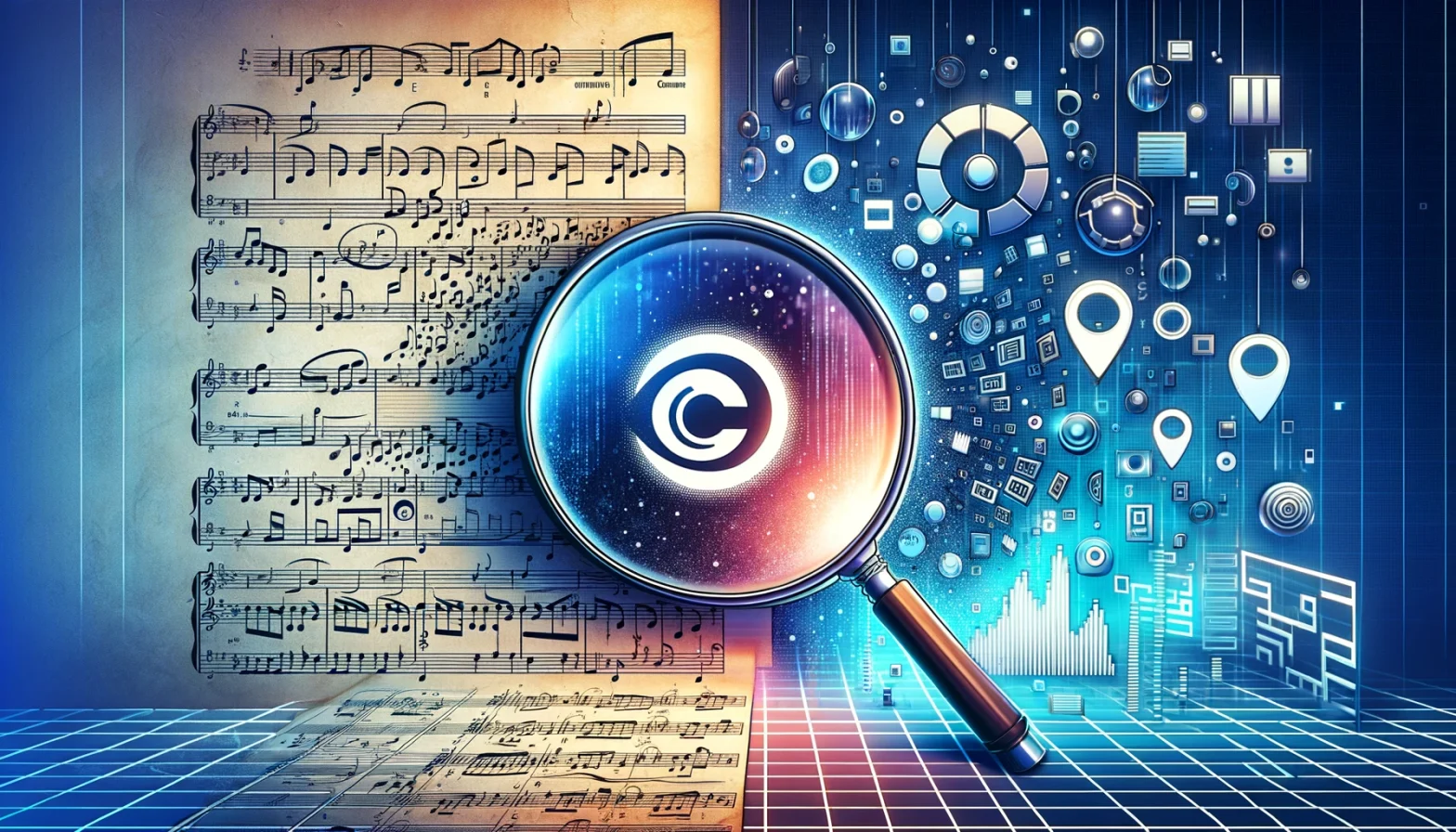In today’s digital age, where music is as ubiquitous as the internet itself, understanding the licensing and rights associated with songs is crucial. Creative Commons (CC) has emerged as a key player in this realm, offering a flexible range of licenses that empower artists and benefit consumers. This article delves into the world of Creative Commons, guiding you on how to identify if a song is licensed under it, and what that means for both users and creators. As we navigate the intricate web of digital music rights, recognizing the role of Creative Commons is not just about legal compliance; it’s about fostering a culture of sharing and innovation in the music industry.
Understanding Creative Commons
Definition of Creative Commons
Creative Commons is a global nonprofit organization that enables sharing and reuse of creativity and knowledge through free legal tools. It offers a variety of licenses, each designed to meet different needs and levels of sharing. From the most permissive to the most restrictive, these licenses allow creators to specify how others can use their work. The concept is rooted in the idea of balancing the interests of the public with those of creators, fostering an environment where creativity can be both protected and accessible.
Different Types of Creative Commons Licenses
Creative Commons licenses are diverse, each tailored to different sharing preferences. The six main types include:
- CC BY: The most flexible, allowing others to distribute, remix, adapt, and build upon the work, even commercially, as long as they credit the original creator.
- CC BY-SA: Similar to CC BY, but requires any new works to carry the same license.
- CC BY-ND: Allows for redistribution, commercial and non-commercial, as long as the work is passed along unchanged and in whole, with credit to the creator.
- CC BY-NC: Permits others to remix, tweak, and build upon the work non-commercially, and although their new works must also acknowledge the creator and be non-commercial, they don’t have to license their derivative works on the same terms.
- CC BY-NC-SA: Combines the non-commercial and share alike attributes.
- CC BY-NC-ND: The most restrictive, only allowing others to download the works and share them with others as long as they credit the creator, but they can’t change them in any way or use them commercially.
Understanding these licenses is key to recognizing the Creative Commons status of a song.
The Significance of Creative Commons in Music

Why Creative Commons is Important for Artists and Users
In the music industry, Creative Commons licenses offer artists the flexibility to share their work as they choose. For artists, it’s a way to reach a wider audience, collaborate, and inspire creativity. For users, these licenses provide legal clarity and access to a diverse range of music for different purposes, from personal enjoyment to content creation.
Impact on Digital Music Distribution
The advent of Creative Commons has revolutionized digital music distribution. It has facilitated the growth of online communities centered around music sharing and collaboration. Platforms like SoundCloud and Jamendo thrive by offering a vast library of Creative Commons music, attracting both creators and consumers. This paradigm shift is not just beneficial for exposure and distribution, but it also nurtures a digital ecosystem where music can be a tool for education, cultural exchange, and creative exploration.
Identifying Creative Commons Music
How to Recognize if a Song is Under Creative Commons
Determining if a song is under Creative Commons involves a few key steps:
- Check the Source: Often, platforms hosting Creative Commons music will indicate the license type. Look for CC symbols or license information in the song’s description or alongside its metadata.
- Use Creative Commons Search Tools: Websites like Creative Commons Search are designed to find CC-licensed works, including music. These tools filter search results to show only those works under Creative Commons licenses.
- Review Artist’s Official Channels: Many artists who release their work under Creative Commons will mention this on their websites or social media profiles. It’s always a good idea to verify directly with the artist or their official channels.
By following these steps, you can reliably determine if a song falls under Creative Commons, ensuring you respect the creator’s licensing intentions.
Tools and Resources to Verify Creative Commons Status
In addition to the methods mentioned, there are several tools and resources available for verifying the Creative Commons status of a song:
- Creative Commons License Badges: Many websites display Creative Commons badges next to the song, which directly indicate the type of CC license.
- Music Libraries Specializing in CC Music: Certain music libraries and platforms specialize in Creative Commons music, making it easier to find songs with specific CC licenses.
- Browser Extensions and Plugins: Some browser extensions are designed to identify Creative Commons licensed content, including music, as you browse the internet.
These resources make it easier for users to navigate the world of Creative Commons music and use the content responsibly and legally.
Legal Implications of Using Creative Commons Music
Understanding the Legal Bounds and Permissions
Using Creative Commons music requires adherence to the specific terms of the license. It’s important to understand that each license type has its own set of rules regarding attribution, commercial use, and modifications. Non-compliance with these terms can lead to legal consequences, including copyright infringement claims.
Consequences of Misuse
Misusing Creative Commons music can result in several legal consequences. These can range from being required to remove the infringing content to facing legal action for copyright infringement. Understanding and respecting the terms of Creative Commons licenses is crucial for legal and ethical use of the music.
Case Studies and Examples

Real-world Examples of Creative Commons Music
Numerous artists and creators have utilized Creative Commons licenses to share their work. For instance, the Free Music Archive offers a wide range of music under different CC licenses, providing examples of how various artists approach licensing.
How Artists and Creators Have Benefited
Artists like Kevin MacLeod have gained significant popularity by releasing music under Creative Commons. This approach has allowed their work to be used in various projects worldwide, increasing exposure and building a dedicated following. These case studies demonstrate the potential reach and impact of adopting Creative Commons licensing in the music industry.
Conclusion and Best Practices
Summarizing Key Takeaways
Creative Commons plays a vital role in the music industry by providing flexible licensing options that benefit both creators and users. Identifying whether a song is under Creative Commons is crucial for legal and ethical use. By respecting the terms of these licenses, users can enjoy a rich variety of music while supporting the creative community.
Tips for Safely Using Creative Commons Music
- Always check the license type and adhere to its terms.
- Use reliable sources and tools to verify the Creative Commons status of a song.
- When in doubt, reach out to the creator for clarification.
- Keep a record of the license and any required attributions for future reference.
Resources
Creative Commons Official Website: The Creative Commons website provides comprehensive resources on legal music for videos. It lists various platforms like ccMixter, Free Music Archive, Jamendo, Magnatune, Fugue Music, BeatPick, CASH Music, and SectionZ, which offer music under Creative Commons licenses. This is an excellent starting point for finding legally reusable music.
Studiobinder.com’s Guide on Copyright Free Music: This guide explains how Creative Commons works in the realm of uncopyrighted music. It’s a valuable resource for understanding the basic concept of Creative Commons licenses and where to find music under these licenses. The guide details the different types of Creative Commons licenses, offering clarity on what each type entails.
Central Washington University’s LibGuide on Finding Music: This guide offers a comprehensive list of sites offering music under Creative Commons licenses. It includes resources like The Internet Archive, BeatPick.com, ccMixter, Free Music Archive, Freesound, FreeSoundtrackMusic.com, Opsound, SoundBible.com, SoundClick, and SoundCloud. This guide is especially useful for finding specific tracks and understanding the licensing terms associated with them.


